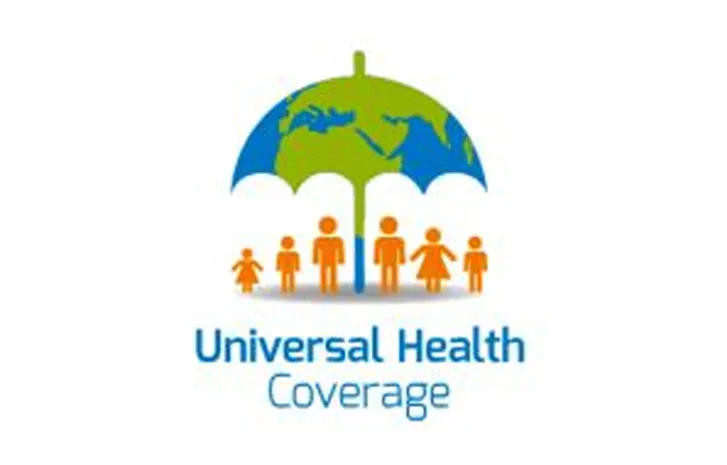
The 2025 Africa Health Business Symposium (AHBS25) wrapped up in Abuja on Friday with a resounding call for increased investments in diagnostics, local pharmaceutical manufacturing, digital innovations and equitable health policies as critical steps toward achieving Universal Health Coverage (UHC) across Africa.
Held under the theme “Leveraging Innovations to Advance Universal Health Coverage in Africa,” the three-day gathering brought together over 200 delegates from more than 30 countries, including health policymakers, private sector stakeholders, development partners and frontline innovators.
The event closed with high-level declarations urging African nations and their partners to move beyond rhetoric and commit to concrete, scalable solutions that prioritise health as both a development imperative and an economic opportunity.
In a stirring keynote address, vice-chair of the board of the WHO Foundation, Rebecca Enonchong emphasised that healthcare should no longer be viewed as a financial burden but rather as one of the most strategic investments any nation can make.
“Every dollar invested in WHO programmes yields 35 dollars in health and economic return, a figure any investor would envy,” she said.
Enonchong shared that the WHO Foundation had launched its first-ever investment round in 2024 to raise $7.1 billion to support critical global health priorities between 2025 and 2028. She revealed that more than 50 per cent of the target had already been secured, including historic contributions from African governments and private sector players.
The funds, Enonchong said, would be channelled toward strengthening pandemic preparedness, expanding access to primary healthcare, advancing digital health infrastructure, improving mental health systems and reinforcing emergency response mechanisms.
“This is not about charity. It’s about innovation that saves lives,” she said. “We must move forward with urgency and partnership because delays cost lives.”
She also announced a $50 million pledge, supported by philanthropic organizations like the Tai Tantuma Foundation, to further catalyse innovation in Africa’s health sector.
In another keynote speech, president of the Healthcare Federation of Liberia, Moholu Johnson announced that a draft policy for a Liberian Health Equity Fund had been finalized. The initiative, he explained, is a joint public-private effort aimed at ensuring all Liberians — regardless of income or location — have access to essential health services.
“Our objective is clear: no one should be denied medical care because they cannot afford it. Our partnerships here have already begun to take shape and we are committed to translating conversations into real impact,” Johnson said.
Adding to the momentum, newly elected leaders of the Ghana Healthcare Federation made an impassioned appeal to partners and stakeholders for inclusive collaboration.
“We are kindly pleading with everybody here: don’t ask where to get Darwin’s. Engage our health foundations,” the representatives urged. “We’re opening the table to shape policy together so that when we reconvene, we’ll be celebrating not just talk, but tangible progress.”
The remarks were met with enthusiastic applause, underscoring strong support for the Federation’s pledge to promote the provider sector as a key pillar in delivering UHC, alongside public institutions.
CEO of the West African Institute of Public Health and co-host of the symposium, Dr. Francis Ohanyido challenged participants to redefine the vision of Africa’s health development beyond traditional paradigms.
“Universal Health Coverage is not a destination; it’s a dynamic process tailored to each country’s unique context,” Ohanyido said.
He praised the deliberate merging of the Africa Primary Healthcare Forum with AHBS25, which he said enabled broader dialogue between public, private and development actors to examine health systems through the lens of primary healthcare (PHC).
He called for a more integrated approach to health and climate change, highlighting the role of PHC systems as both delivery mechanisms and early warning systems for climate-related health threats.
“We need to stop using colonial constructs like ‘sub-Saharan Africa.’ We have one continent — Africa. Let’s speak that way, especially when climate change respects no borders,” he added.
Ohanyido emphasised the importance of community-led solutions, youth participation, and indigenous innovations in charting Africa’s path to health equity. He concluded by presenting a special recognition award to a distinguished African health champion who has made remarkable contributions to the continent’s health landscape.
Executive chairman of Africa Health Business and the Africa Healthcare Federation, Dr. Amit Thakker (key conveners of the symposium) echoed the call for sustained collective action.
“This symposium is not just an event. It’s a boot camp. It’s a process,” Thakker declared. “We have made new connections, developed practical ideas, and now we must carry them forward.”
He introduced a seven-point action plan to strengthen UHC resilience across the continent, with a focus on public-private partnerships, inclusive financing mechanisms, and harmonized health policies.
“Africa is not waiting to catch up. It’s leading, from drone-delivered vaccines to AI-powered diagnostics. What we need now is to fund what works and scale what’s already working,” he said.
In the closing ceremony, chief development officer at the WHO Foundation, Valerie Boulet issued an invitation to African governments and private sector actors to join the ongoing WHO Investment Round. She described it as a bridge connecting donor resources to implementable, locally driven solutions.
“Achieving UHC requires more than policy statements. It needs innovation, sustainable financing, and actionable partnerships,” Boulet said.
She emphasized that Africa’s leadership in health innovation is critical not only for the continent’s well-being but also for global health security.
Meanwhile, Science Nigeria reported that the symposium created a vibrant platform for dialogue, networking, and investment matchmaking. Sessions addressed emerging topics such as climate-health integration, digital transformation, localized pharmaceutical production, and coordinated public-private collaboration.
Participants engaged in more than 2,000 minutes of interactive discussions and workshops. The event concluded with a symbolic handover ceremony, as West Africa passed the mantle of hosting the next edition of the Africa Health Business Symposium to East Africa.
As applause filled the auditorium one final time, the key message was clear: Africa’s journey toward UHC is rooted in its own strengths — inclusive, innovative and unapologetically African.

